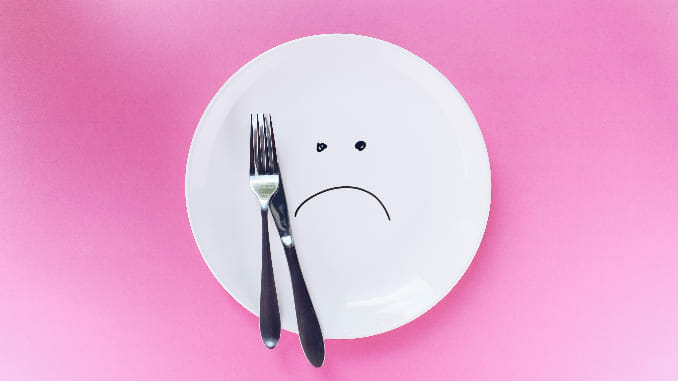Purity Culture, Diet Culture and Where They Intersect
Photo by Thought Catalog/Unsplash Food Features diet
As Americans face the reality that Roe vs. Wade, the Supreme Court decision that legalized abortion in 1973, will almost certainly be overturned in a matter of days or weeks, we must contend with the continued grip purity culture has on the collective American consciousness. “Purity culture,” at least in the American context, is generally associated with female sexuality—and the supposed need to suppress it. But in social psychologist Jonathan Haidt’s 2008 Ted Talk entitled “The moral roots of liberals and conservatives,” Haidt draws parallels between food, sexuality and their links to ideas of purity:
“Purity is not just about suppressing female sexuality. It’s about any kind of ideology, any kind of idea, that tells you that you can attain virtue by controlling what you do with your body, by controlling what you put into your body. And while the political right may moralize sex much more, the political left is really doing a lot of it with food. Food is becoming extremely moralized nowadays, and a lot of it is ideas about purity, about what you’re willing to touch or put into your body.”
Purity in the context of food often relates to the supposed health factor of a given product: Eating “clean” means adhering to whatever dietary advice is currently in fashion. In the ‘90s, it was avoiding fat at all costs. These days, it’s more often about cutting carbs in favor of protein-rich foods. But regardless of the diet in question, a pursuit of “health” in popular culture almost always celebrates one factor above all else: thinness. And often, it’s the political left that latches onto these ideas. That’s not to say that those on the right don’t diet, but the New York Times’ 2020 “fridge quiz” asking readers to guess whether particular fridges belonged to either Biden or Trump supporters indicates that we as a society do have very specific ideas of what the political left and right eat; the left is associated with more produce and fewer processed products, i.e., “cleaner” foods. (I won’t touch on the classism present in this line of thought, but it’s definitely there.)
Although ideas about these differing concepts of purity may seem largely unrelated, upon closer inspection, it becomes clear that they’re inherently intertwined. In the end, purity, whether accessed through the medium of food or sexuality, expresses itself in our culture through female bodies. It asks those with female bodies to restrain, refrain, limit. It asks us to make ourselves smaller, both physically and in terms of life experience. It asks us to take less—and be satisfied with what we get. And that’s why a rejection of purity culture must be accompanied by a rejection of diet culture.
Diet culture is a way of thinking about food and health: that body shape and size are of greater importance than physical and mental wellbeing. This mentality can bring about disordered eating, shame, body image issues and a host of other problems. Perhaps most importantly, it can drain life of all its joy because it diminishes the role of both food and movement in one’s life to purely utilitarian concerns. For those of us who are lucky enough to be able to afford food we enjoy, it’s one of the few reliable sources of pleasure in life. Sitting down to an enjoyable meal three times a day can function as a psychological lifeline when everything seems like it’s going wrong, and it’s a way of celebrating when we reach important goals or milestones. Diet culture robs us of all the uses of food that dare to venture beyond basic dietary functions.
And for what? It’s all in the name of thinness—not health. This is evidenced by the fact that thin people who follow supposedly unhealthy diets do not face discrimination based on their food choices because their bodies fit into society’s expected mold. But regardless of a fat person’s diet, they must contend with the prejudice that goes hand in hand with having a bigger body in the U.S. and much of the rest of the world.
This isn’t to say that men don’t face discrimination based on their size, but since women are largely reduced to nothing more than their appearance, it could be argued that the toxic effects of diet culture affect them more. In this way, diet culture is a tool of the patriarchy in much the same way purity culture is. Through these structures, women are psychologically controlled: pressured to shape their bodies to appease straight men’s desires but simultaneously encouraged to repress their own.
As American women contend with the greatest societal threat to bodily autonomy in 50 years, we must resist the urge to stop at the sexual purity culture that has a grip on the country’s political right. The left must come to terms its deep-seated fatphobia and equally reject diet culture. Without doing so, I fear that generations of women to come will face the same regressive patterns of thought that have led us to this point once again.
Samantha Maxwell is a food writer and editor based in Boston. Follow her on Twitter at @samseating.